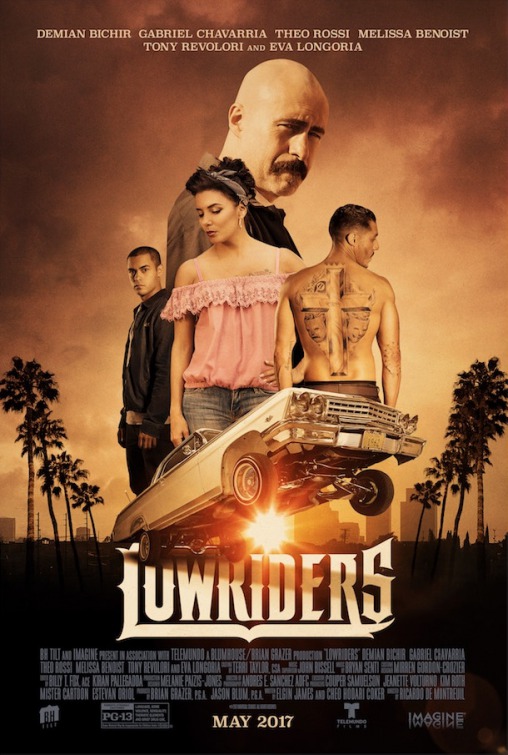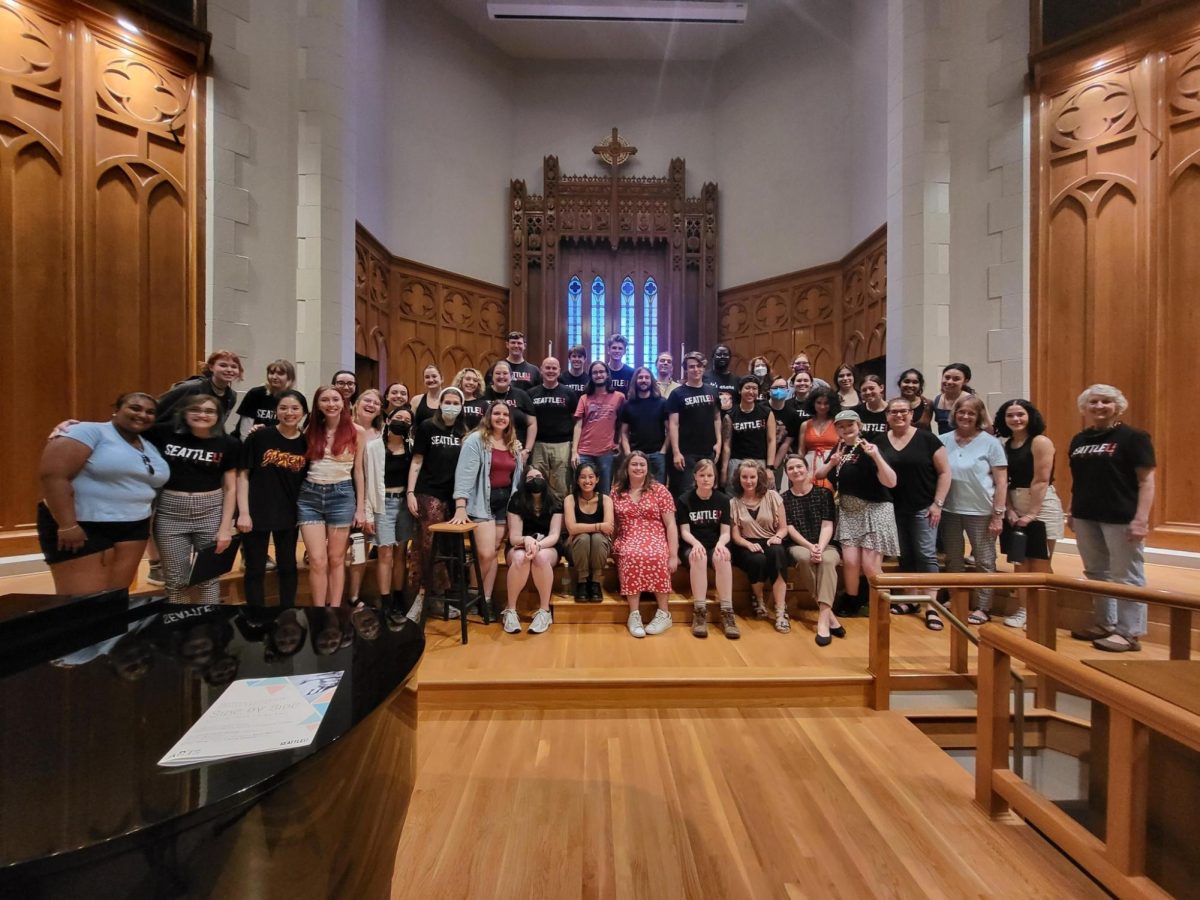“This whole city is my canvas,” said Gabriel Chavarria, who plays Danny in the movie Lowriders. “I put up my art for free, and he wastes his money for car parts. That makes no sense to me.”
Rather than constructing lowriders like his dad, Danny is a young street artist in the movie Lowriders who goes around East Los Angeles drawing on hidden buildings. In the quote, Danny questions Miguel, his father played by Demián Bichir, dedication to his work with lowriders.
Lowriders is a movie produced by Ricardo de Montrevil released on May 12 which goes to capture the Lowrider scene in East Los Angeles while at the same time solving conflicts in Danny’s life.
The main conflict in this movie is Danny’s having to choose between his father and his brother Francisco ‘Ghost’ Alvarez, played by Theo Rossi. Ghost is an ex-convict who, instead of building a lowrider car with his father, chooses to get in trouble with the law and find himself locked up in prison. Miguel refuses to talk about Ghost throughout the movie, one of the reasons people named him Ghost. A few minutes into the movie, Ghost is released from prison. Miguel has to confront his son, and Danny has to choose whose side to be on.
Eva Longoria makes an appearance in the film as Gloria, Miguel’s second wife and Danny’s and Ghost’s stepmom. Her role is to encourage Miguel to engage in a meaningful relationship with his sons; however, her role is very limited, making an appearance only a handful of times. Hollywood is in need of women of color on the big screen, but adding Longoria to the cast only works if she takes on a role as heavy as her male counterparts. Throughout the film, there was a substantial use of different elements that elevated the production of the film. The lighting captured the images of a real L.A. that is absent in most Hollywood films. Its soundtrack, chosen by Bryan Senti, also worked to give each scene sentimental value.
It seems as if white actors can’t be absent from Hollywood films. A role that could have easily been played by a brown girl in East L.A. was played by Melissa Benoist. Benoist plays Danny’s girlfriend in the film, Lorelai. Lorelai pushes Danny to make his art known in a more professional platform, instead of just hiding it on buildings that are barely looked at.
Bichir could have centered lowriders, the community they create and the stigma that was attached to them as they rode lowriders, but instead, he decided to add various conflicts that at times seems to pull the audience away from what was supposed to remain center of attention: lowriders.
The Lowrider culture began in the 50s and 60s in the Chicanx communities of East Los Angeles. Surrounding communities have thought of those lowriders as “gangsters,” but lowriding was a portrayal of culture, a way to preserve one’s way of life rather than buy into the Anglican ways. Those who didn’t connect with the lowrider culture instead connected the culture to violence.
Lowriders consisted of mostly Chevy Impalas and Monte Carlos and Buick Regal with fresh paint on the hood of the cars. Typically, the murals on the hoods depicted religious or family images. Owners of the cars would meet up on weekends to show off their cars. These “meet-ups” were a space for Mexican-Americans to create community distinct from the communities that was racist against them.
In 1958, there was a law concerning these decorated cars in California. According to this law, it was illegal to drop the cars lower than the bottom of its rims. This made the hydraulic lift on cars possible. While driving, the cars were seen at normal lift, but when lowriders were clear of cops, they would drop their cars once again and began to ride bajito y suavecito—low and slow.
Yesenia may be reached at
[email protected]












